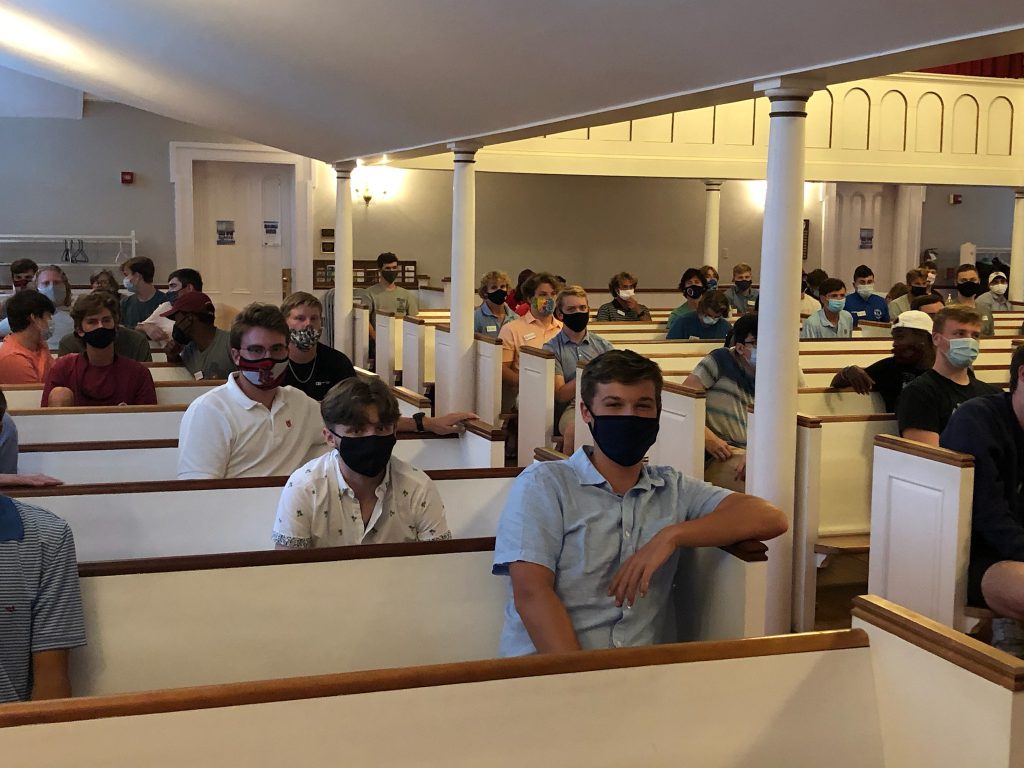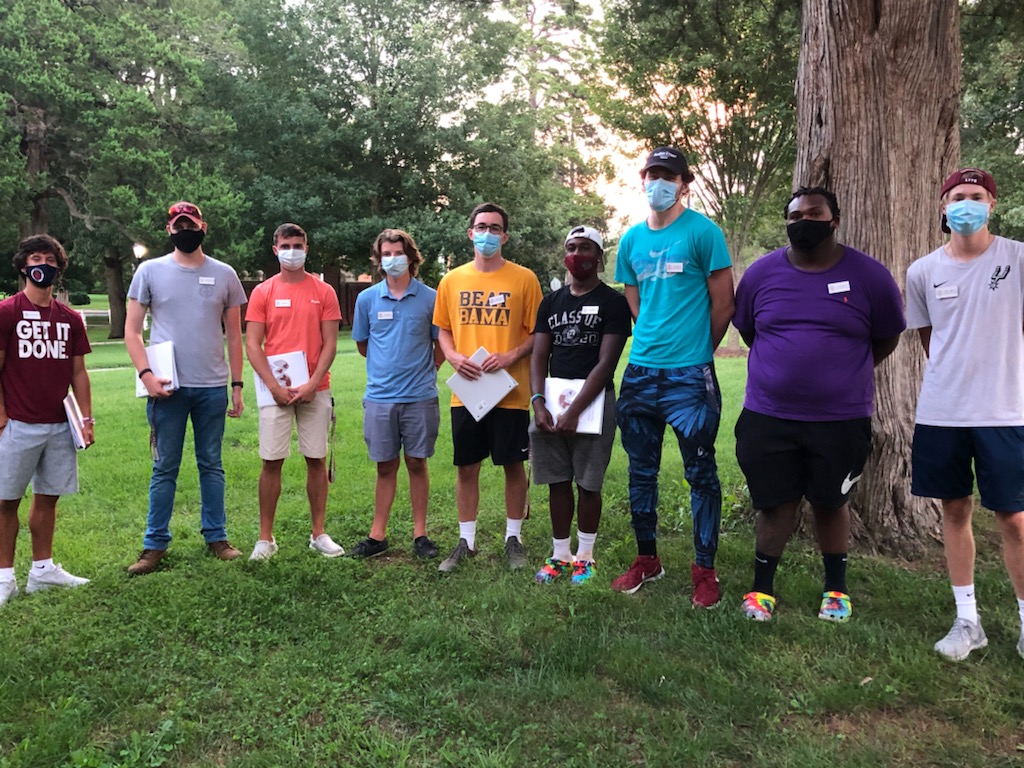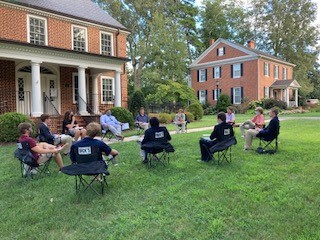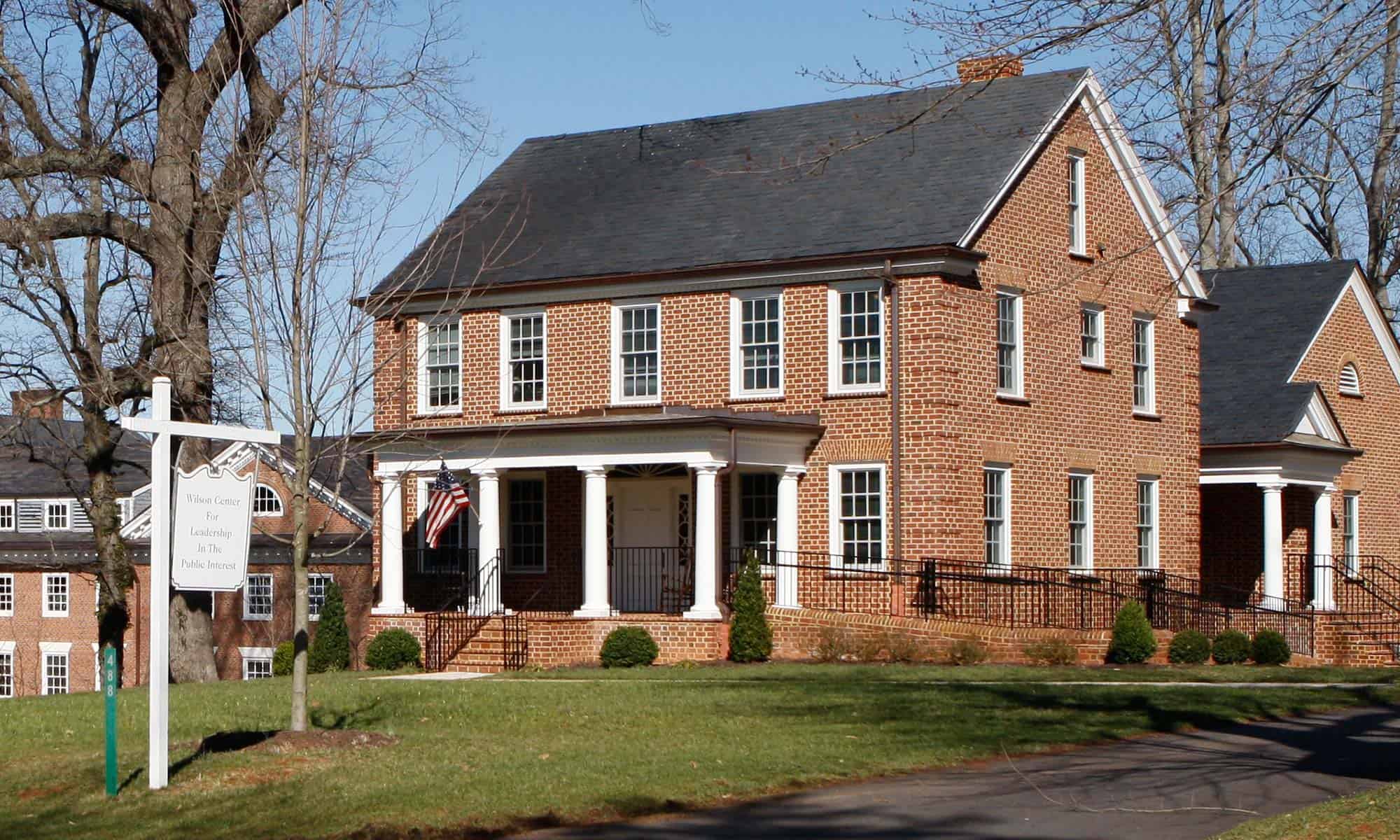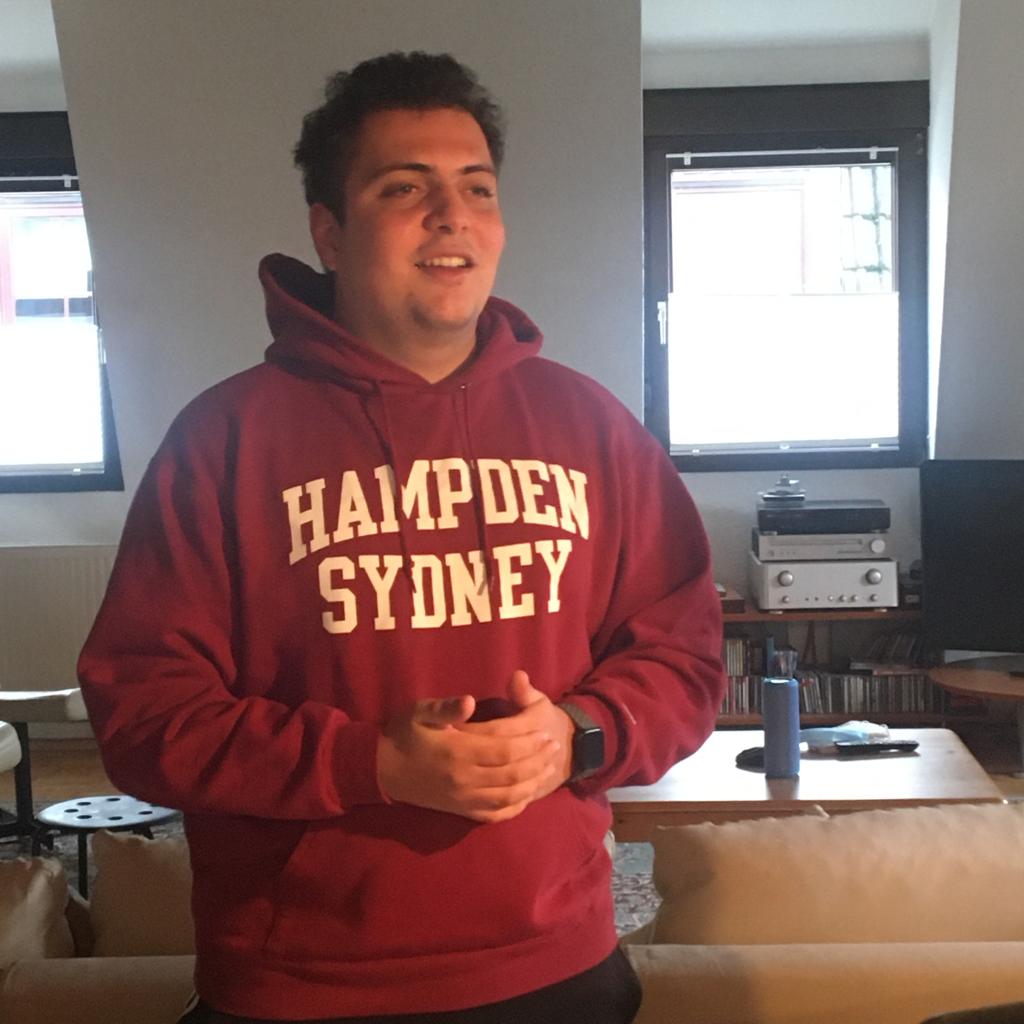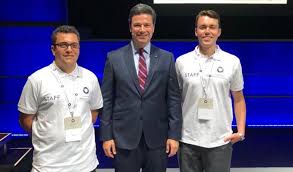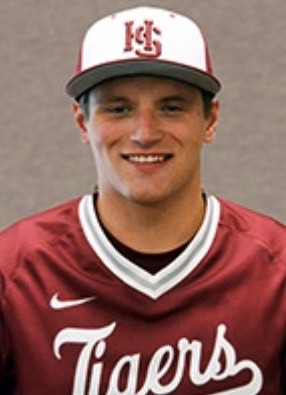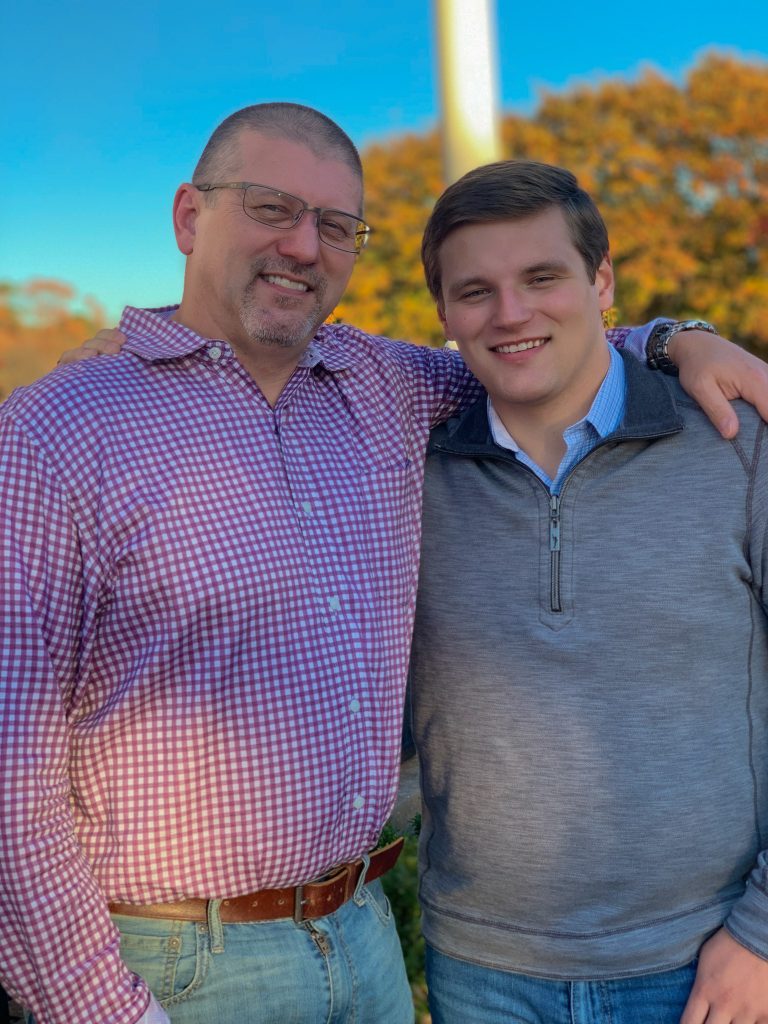The Hampden-Sydney community lost a legend this November. Dr. Ronald Heinemann will be remembered for his charismatic lectures, strong opinions, humor, outstanding scholarship, humility, and service to this community, our commonwealth, and our republic. Dr. Heinemann was a longtime supporter of the Summer College and the Wilson Center lectures and programs. He was awarded the James Madison Award for service to the Wilson Center in the spring of 2018.
Dr. Heinemann epitomized the very best of what it meant to be a professor at Hampden-Sydney College and at any institution committed to liberal education. He was an outstanding scholar, noted by many in his discipline, but was superbly gifted in the classroom and dedicated to teaching. He had many deeply held opinions, but was objective, open-minded, and always willing to listen and acknowledge strong points, even when they differed with his opinions. He critiqued the institution but did so out of love, respect and hope for positive change. He ultimately served this institution he loved for parts of seven decades. Most importantly, students were at the heart of what he did. He held students accountable, pushed, critiqued, and thoroughly enjoyed teaching, shaping, and molding 18-22 year old young men.
Dr. Heinemann was committed to the College, to liberal arts education, and to our mission of forming good men and good citizens with the hope that the students would serve others, and in so doing would help perpetuate our republic. Transcendent values like service, honesty, objectivity, community, the transfer and building of knowledge, and care for the underserved defined his professional life.
May his life of service stand as model for current and future Hampden-Sydney faculty, staff, and students. May we continue to remember Mrs. Sandy Heinemann, their daughter Erica, son David, grandchildren, extended family, and friends in our thoughts and our prayers.
Please be on the lookout for additional information about ways Dr. Heinemann will be honored by the Wilson Center, the History Department, and the College.
Enjoy some remembrances from his colleagues at the Wilson Center:
Farmville Herald Article
Talk with Drs. Simms and Heinemann
Electoral College Debate with Drs. Marion and Heinemann
Dr. John Eastby
When I was asked to add to the remembrances of Ron, I was not sure where to begin. I have only been here since 1989, and Ron was already twenty years into his career when I came to know him. Unlike several member of my department, (Political Science at the time) I did not have an office on the third floor of Morton so, excepting as I had a class on the floor, I did not see Ron often nor have occasion to interact professionally with him on any regular basis. We knew who each other was, and from early on, I understood that Ron was an important member of the Four Horsemen of the History Department (Jim Simms, Amos Lee Laine, and Keith Fitch). Ron and I seldom had any sustained interaction and he was not on the same committees as I was during that time.
It was really not for another ten years after I arrived, I suppose, that I came to know Ron beyond the acquaintance level. Oddly enough, the circumstances were not academic but musical, and religious music in particular. Rondi and I had begun attending College Church almost immediately after arriving at H-SC, and Rondi joined the choir quite early in our time here, but I did not. I am not even sure when I did finally join, but it can be placed somewhere in the late 1990’s. Ron sang tenor, and I was a baritone, but there were times when another tenor was needed. Gradually, I began singing tenor as often as I was singing bass or baritone, and it was in that role that I think I most fully came to know Ron. He had a very nice tenor voice–smooth, and gentle–if I may put it that way. His pitch and sense of rhythm were both sound, and he was a regular in attendance, both for practice and on Sunday.
Although I was a genuine latecomer, the tenors section (he and Dr. Tom Mayo having anchored the section for some time before I joined) I always felt welcome. Anyway, to get to the main point, it was in the choir that I got to know Ron and to see the ways in which his public or teaching life flowed out of his personal life. In practice he wanted to make sure we got things right melodically and rhythmically. His entrances were always firm and confident. Even when West Wing was calling, he was willing to go over a part or a piece one more time to make sure we had the music. He was almost invariably upbeat and positive in rehearsal and on Sundays. Before or after rehearsal (and sometimes while the sopranos went over a part) we almost always had occasion to discuss something related to the well-being of the College (and it was never far from his mind), or the state of the nation and the Commonwealth, or the Detroit Tigers.
And so it was on Wednesday nights that I got to see Ron in regular action and to see the depth of his sense of care for the well-being of the institution, and particularly, the education of our students. What always stood out, even from vantage of a choir conversation, was that his concern was not just that they acquire some detail of historical knowledge, or hone their ability to write, but that they develop a moral alertness as the touchstone for interpreting the history or the news they (and we) are bombarded with daily. And so, most every week during the fall and spring (summers were down time for the choir), I was gradually provided the opportunity to encounter Ron, not just as a colleague, but a fellow singer, church congregant, and friend. When Ron became ill and need treatments in Richmond a few years back, he asked me to drive him for one of the visits. We had a far ranging conversation of the type one only gets to have on rare occasions, and it will probably be the memory of that day that will stick with me most fully in the coming years.
It was partly that engagement that gave me the idea to use Ron and others to help in a course that Dr. Ken Lehman and I put together about two years ago now. Ron had played an important part in planning and producing the Vietnam War Conference back in 1992–certainly the most remarkable conference I ever had occasion to observe here or anywhere else. General Sam Wilson had wanted to use that conference as a resource for the students, but we had not followed up on that fully over the years. However, after some conversation with Dr. Lehman, we dusted off the tapes and used them as a basis for reconsidering American participation in the war. As we planned the program, it increasingly seemed appropriate to bring in some of the original H-SC contributors to the panels. These include Dr. Alan Farrell, Dr. Jim Simms and of course Dr. Heinemann. We brought them in twice each, and we also used B.A. Klein for a session as well. And in all four cases, their presentations and discussions went beyond what Ken and I could have hoped for. I am not sure that, without having come to know Ron in choir and the discussions that grew out of that experience, it would have occurred to me (us) to offer the special topics course and to bring Ron and the others in, but Ron was immediately supportive of the project. And as I say, he did not disappoint. He (and Alan and Jim) being contemporaries of the war and participants in the conference brought a life to our discussion which will always make that course one of the significant memories of my time at H-SC.
I am sure that by living in this academic village for thirty years I would have come to know Ron regardless, but, as I hope I made clear above, it was, I think, the regular contact and opportunities made possible in the somewhat unlikely venue of College Church Choir that led to many, if not most, of my strongest memories of Ron. It was in College Church that the colleague I first met in the halls of Morton became a friend and something of a model for understanding education, not simply as the assimilation of information, but as the development of a serious moral capacity by which to filter and use that information.
Dr. Caroline Emmons
A sad year became sadder still when our College community lost two longtime faculty members with the deaths of Tom De Wolfe, Emeritus Professor of Psychology, and Ron Heinemann, Squires Emeritus Professor of History. Both men had taught at the College for decades, shaping not only the academic program, but also the lives of thousands of young men. As a member of the History Department, I worked most closely with Ron Heinemann and, indeed, had been hired to be his replacement in teaching 20th-century American History. Of course, no one could replace Ron, and he was never really ready to retire. As a result, I had the opportunity to be his colleague more than his successor. In important respects, Ron shaped my understanding of what it means to be an effective faculty member at Hampden-Sydney: a passion for teaching, a commitment to the ideals upon which the college was founded and, above all, dedication to the education of our students.
Many students and alumni have shared memories of Ron and the experience of taking classes with him. One I’ve heard most often recalls the first day of Ron’s Civil War class, when he habitually proclaimed to students that Robert E. Lee was a traitor, a shocking assertion for many raised on a very different historical interpretation. While Ron may not have persuaded all of his students to accept this view —although more than a few have said they were persuaded, to their own surprise— he was such a forceful and effective lecturer that most were enthralled from that moment forward. I learned from Ron that, while our students may be taken aback when presented with challenging or unwelcome information, if I was rigorous with them and with myself, fearless in presenting the historical record, and uncompromising in expecting them to use evidence and reason to support their positions, I could be successful in Hampden-Sydney classrooms. I have always found this to be true. Ron pushed all of us to be better: better at explaining and defending our views, better at nurturing our students in their intellectual growth, and better at serving as stewards of the College he loved so well.
Dr. David Marion
Remembering a Good Man and a Good Citizen
Ronald Heinemann was not a quiet or timid member of the Hampden-Sydney community—he made his presence felt around campus, and beyond the campus as well. He was unquestionably a consequential member of the Hampden-Sydney family, and the depth of his commitment to making a difference was reflected in the energy, passion, and serious thought that he invested in his teaching, his scholarship, his community service, and life itself. His moral convictions defined him in every way that is important, and they were visible for everyone to see—Ron was not one to hide his convictions under a bushel basket. Our conversations over a period of more than forty years, some of them public and some private, were often spirited and always enlightening. Our last public debate, on the merits of the Electoral College, took place less than a month before his untimely death. His criticism of the Electoral College was tough and informed, and his stamina at 81 left me at 72 feeling rather aged. I apologized the next morning for the occasional aggressiveness of my defense of the Electoral College only to have him respond that debates should be spirited. He could be spirited himself, but he was always a gentleman. Ron was emblematic of what was best about the Hampden-Sydney College that I joined in the mid-1970s—it will be a shame if the qualities that defined him are not also emblematic of what is the best about Hampden-Sydney College in the decades to come.
Dr. Jim Simms
Written by his dear friend and long-time colleague, Dr. Jim Simms, as Dr. Heinemann was awarded the Algernon Sydney Sullivan Medallion
Our second honoree for the Algernon Sydney Sullivan Medallion is Ronald Lynton Heinemann, Squires Professor Emeritus of History. Professor Heinemann began his teaching career at Hampden-Sydney College in 1968, teaching American History, specifically the era of the Civil War and 20th Century U.S. History, and retiring from full-time teaching in 2004. Continuing to teach on a part-time basis, Professor Heinemann has just completed his thirty-ninth year of service to the College, a service that on any standard would be considered outstanding—outstanding as one of the most renowned and respected teachers at Hampden-Sydney College in the last half of the 20th century. He has received teaching awards on six different occasion: the Settle Trustees Prize for outstanding teaching and scholarship, the Cabell Teaching Award, and four Fuqua Teaching Awards voted on by the students. Professor Heinemann has also been outstanding as a scholar, being an authority on Virginia History and having authored or edited four monographs and published several articles pertaining to the Commonwealth. His most important book is the very highly praised biography of an icon of Virginia politics–Harry Byrd. In addition, he is frequently asked to give lectures on Virginia’s history and politics around the state. His record as a scholar and teacher make him a standout even within the very talented and productive faculty at Hampden-Sydney—primus inter pares.
But, Professor Heinemann’s service to the College transcends being just a teacher and scholar. A good liberal arts education is only one aspect of the Hampden-Sydney experience—albeit quite important. Hampden-Sydney is also about the formation “of good men and good citizens,” and once again Professor Heinemann has been an outstanding servant of this College as a role model for her sons. Among his many personality strengths is a strong moral ethos which informs his person, his teaching, and his scholarship. Dr. Heinemann believes that the historian must do more than simply recount the past and study history for its own sake. He believes that the historian functions as the moral conscience of the society. Ultimately, the historian must assess the past and make moral judgments which are intended to inform the students’ judgments about the present and reinforce the values brought with the student to the College. It is indicative of the presence of moral issues in his classroom that before his first semester at Hampden-Sydney was completed, the students had given him the sobriquet “Righteous Ronnie,” not a appellation of derision, but one of sincere affection and respect.
One might argue that what is more important to the student than the facts and dates of the past or even the moral assessment that one may make—history after all is a matter of interpretation—is the professor himself. Students will forget the details of the past, i.e. who was the “Rock of Chicaumaugua,” or what was General Westmoreland’s strategy at Khe Son., but they will not forget the experience of being in Professor Heinemann’s class. Dr. Heinemann was and still is an example of what is truly to be admired in a professor. He presented to his students a dignified persona, and by respecting his student he engendered their respect. To conduct oneself with dignity was the standard for both student and professor. His students observed that taking pride in one’s work and hard work itself are admirable traits. They learned that being passionate about life and about one’s profession are positive virtues. They observed that one should have the courage of his convictions, as he himself demonstrated on a number of issues over the years. And they observed that caring for the downtrodden and rejecting discrimination is an obligation of all good men and good citizens. And they understood that while he was preaching to them, instructing them, and criticizing them, he cared deeply about them as young people and about their spiritual and moral well-being. The students knew that he liked them. Ultimately, it is who he was and is as a person that is his most important gift to his students and this College community.
Professor Heinemann has made teaching at Hampden-Sydney his life’s work in the vein of Brinkley, Thompson, Crawley, Bliss, Ferenz, Gilmer …. Working here was not simply a nice way to earn a living; working here was a commitment to a way of life. A man of dedication, honor, and integrity, Professor Heinemann has unreservedly given of himself to this College, the community and his students and is a worthy recipient of the Algernon Sydney Sullivan Medallion.
